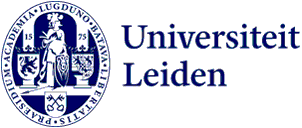
Changing power relations and rising stars
The norms, institutions and power relations that have defined the last decades of international political and economic relations in the European Union are undergoing major transformations. With the return of competition between great and ambitious powers, like the US, China, EU and Russia, the need for new, systematic research is evident. This is why a consortium of multiple prominent universities and other institutions have been awarded the prestigious MSCA Doctoral Networks. One of the main partners is Leiden University, represented by political scientist Karolina Pomorska.
The MSCA Doctoral Networks
The Marie Skłodowska-Curie Actions (MSCA) Doctoral Networks are part of Horizon Europe, the EU’s key funding programme for research and innovation. The objective of these networks is to implement programmes through partnerships with organisations from different sectors across Europe and beyond to train highly skilled doctoral candidates.
In this case, the awarded research programme, called ‘EUFOG’, plans to train a new generation of scholars through 18 PhD positions and various other activities. At least two of these PhD positions will be based at the Institute of Political Science at Leiden University, under the supervision of Associate Professor Karolina Pomorska: one on the topic of EU enlargement and the other on the EU’s ‘strategic autonomy’.
The consortium that was awarded this funding by the European Commission and the United Kingdom’ Research and Innovation department (totalling 5 million Euro), consists of a diverse collection of institutions. There are seven key partners, including Leiden University. Universities in Barcelona, Bristol, Krakow, Oslo, Vienna and Ghent are also involved. According to Pomorska, ‘the collaboration that has led to EUFOG has a firm foundation. We have been working together for almost two decades, with lead researchers, think tanks, policy centres and partners outside of Europe.’ The Dutch International Affairs Think Tank, Clingendael, will also support the project. The kick-off is scheduled on 1 December 2024.
Contested EU foreign policy in an era of geopolitical change
The EUFOG consortium intends to contribute to a better understanding of how the EU is reconsidering its role in the face of the geopolitical turn in international politics. Although the final destination of these changes is still to be seen, the situation is shaped by a return of competition between great powers in a multipolar world, like the US, China, EU and Russia, facilitated further by the growing geopolitical ambitions of many regional powers, like India, Indonesia, Turkey, Iran, Brazil and South Africa.
The backdrop of these challenges is daunting: climate change, pandemics, and the deteriorating environment, as well as technological developments and the advance of AI, an ever-fierce competition for resources, and the pervasiveness of new media ecology. ‘International relations have irrevocably changed’, says Pomorska. ’Hence there is a need for in-depth knowledge that will ensure the EU and its Member States can effectively navigate international power shifts and contribute to more sustainable global governance.’

From a consensus-based institution to proactive international actor?
Traditionally, over the past decades, the EU has been seen in a rather different light. Pomorska explains: ‘The external relations of the EU were understood as reflecting the kind of polity the EU was: an integration-through-law project, and a community of values. Support for multilateralism, which refers to the process of organising relations between multiple states, and the promotion of certain international norms were seen as the unproblematic externalisation of internal consensuses. Second, even when the EU entertained projects of reform for the international order, they sought to strengthen its institutions and norms, at a moment when such strengthening was perceived as being broadly in line with the trajectory of international politics. This state of affairs has ceased to exist.’
EUFOG will train a generation of scholars to enable them to address the politics (the political conflicts and debates), policies (decisions and measures) and partners (relationships and perceptions) associated with how EU foreign policy responds to new international realities in a broad range of issue areas, from security to trade to human rights. Therefore, it will focus on how the EU evolves as an international actor in a contested and more fragmented international system.
Interdisciplinary PhD programme
EUFOG will achieve this through an integrated four-year PhD programme in line with EU Principles for Innovative Doctoral Training. Its network of 17 industry-academia partners will provide high-level and interdisciplinary research and specialised training in social and political sciences, political economy, and communication, including research visits and secondments at associated partners, to bridge the gap between academic research and everyday policy practice. EUFOG will recruit, employ, and provide advanced training for a new cohort of researchers. ‘They will gain in-depth knowledge of the international order and EU foreign policy and foreign policy-making, through an integrated, cross-policy, cross-sector programme. The project will also provide the EU with fundamental inputs to design more coherent and comprehensive strategies to face an ever more conflictive international order, and be more aware of the political, institutional and normative trade-offs implied in the choices’, Pomorska concludes.
